- then make sure to get enough of the essential nutrients so you can cope with more
 Stress is a large problem for many people. It is believed that the majority of people who consult their physician do it because of stress-related problems. Many people try to relieve their stress with sweets, coffee, alcohol, painkillers, and sleeping medication just to get through the day. However, in the long run, this can turn into a vicious cycle that increases your risk of disease and faster ageing. There are dozens of books about stress that can be useful for solving problems and slowing down your pace, but don’t forget that stress is also physiological. It is a condition that deteriorates tissues, burdens the body with free radicals and increases your need for B-vitamins, vitamin C, magnesium, selenium and coenzyme Q10. If you make sure to get the necessary essential nutrients before it is too late, you can cope with more.
Stress is a large problem for many people. It is believed that the majority of people who consult their physician do it because of stress-related problems. Many people try to relieve their stress with sweets, coffee, alcohol, painkillers, and sleeping medication just to get through the day. However, in the long run, this can turn into a vicious cycle that increases your risk of disease and faster ageing. There are dozens of books about stress that can be useful for solving problems and slowing down your pace, but don’t forget that stress is also physiological. It is a condition that deteriorates tissues, burdens the body with free radicals and increases your need for B-vitamins, vitamin C, magnesium, selenium and coenzyme Q10. If you make sure to get the necessary essential nutrients before it is too late, you can cope with more.
- but researchers warn against reduced intake levels
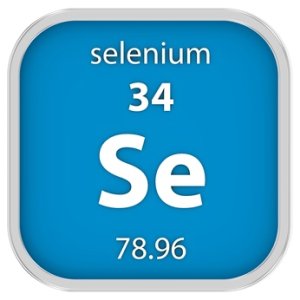 Even if you eat a healthy and balanced diet, it can be difficult to get enough selenium because of climate changes and nutrient depletion of the soil, especially in Europe. This was shown in a study conducted by Swiss scientists. Selenium is very important for the immune system, but how much do we need to be optimally protected against infections? There also appears to be a connection between widespread selenium deficiency and the increased rate of cancer.
Even if you eat a healthy and balanced diet, it can be difficult to get enough selenium because of climate changes and nutrient depletion of the soil, especially in Europe. This was shown in a study conducted by Swiss scientists. Selenium is very important for the immune system, but how much do we need to be optimally protected against infections? There also appears to be a connection between widespread selenium deficiency and the increased rate of cancer.
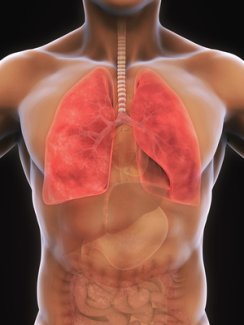 Taking a supplement of vitamin D in combination with your prescription asthma medicine may halve your risk of an asthma attack that would require hospitalization, according to a new meta-analysis from Queen Mary University in London (QMUL). A vitamin D deficiency alone, which is rather common at northern latitudes, can increase the risk of asthma. Therefore, it is vital to make sure to have sufficiently high levels of this nutrient all year round to protect your respiratory tract.
Taking a supplement of vitamin D in combination with your prescription asthma medicine may halve your risk of an asthma attack that would require hospitalization, according to a new meta-analysis from Queen Mary University in London (QMUL). A vitamin D deficiency alone, which is rather common at northern latitudes, can increase the risk of asthma. Therefore, it is vital to make sure to have sufficiently high levels of this nutrient all year round to protect your respiratory tract.
 Vitamin C is essential for the immune defense for a number of reasons. According to a review of 12 recent studies, vitamin C administered in sufficiently high doses can prevent severe COVID-19 infections and save lives. The problem is that most people fail to follow the official dietary guidelines for fruit and vegetable consumption, which is why so many people lack vitamin C. Another thing is that health authorities in general are unaware of the health benefits of vitamin C in therapeutic doses, even after 80 years of international research.
Vitamin C is essential for the immune defense for a number of reasons. According to a review of 12 recent studies, vitamin C administered in sufficiently high doses can prevent severe COVID-19 infections and save lives. The problem is that most people fail to follow the official dietary guidelines for fruit and vegetable consumption, which is why so many people lack vitamin C. Another thing is that health authorities in general are unaware of the health benefits of vitamin C in therapeutic doses, even after 80 years of international research.
- increasing your risk of pancreatitis and other complications
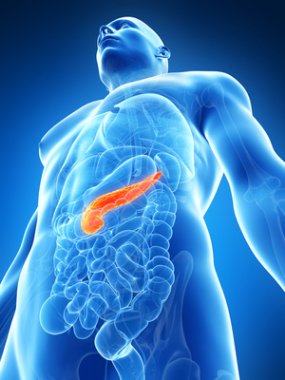 A new American study shows that chronic alcohol abuse impairs the ability of the pancreas to absorb vitamin C, and that increases the risk of infection of the pancreas (pancreatitis) and other diseases. Lack of certain B vitamins may also damage the pancreas and increase the risk of encephalitis.
A new American study shows that chronic alcohol abuse impairs the ability of the pancreas to absorb vitamin C, and that increases the risk of infection of the pancreas (pancreatitis) and other diseases. Lack of certain B vitamins may also damage the pancreas and increase the risk of encephalitis.
 Supplementing with strong antioxidants such as beta-carotene, vitamin E, selenium, and coenzyme Q10 may help patients with cystic fibrosis by reducing a number of the respiratory infections that come with the disease. This was seen in a study by researchers at the Children’s Hospital Colorado and the University of Colorado, United States.
Supplementing with strong antioxidants such as beta-carotene, vitamin E, selenium, and coenzyme Q10 may help patients with cystic fibrosis by reducing a number of the respiratory infections that come with the disease. This was seen in a study by researchers at the Children’s Hospital Colorado and the University of Colorado, United States.
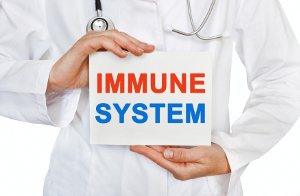 Lack of vitamin D is rather common and taking large quantities of the nutrient can not only protect against virus infections like COVID-19 but even counteract the life-threatening complications in those affected with the disease, according to a new, comprehensive, Irish report (TILDA) from Trinity College Dublin (University of Dublin in Ireland). The TILDA report supports many other published studies showing that the immune system is unable to function without vitamin D. The main focus in the battle against COVID-19 is hygiene, isolation, and delayed immunization with vaccines. However, it is also essential to bolster the immune defense, as this determines the difference between being able to ward off the infection, suffer mild symptoms only, or succumb. The scientists recommend that all adults take a high-dosed vitamin D supplement, especially older people, nursing home residents, chronically ill people, hospital patients, health professionals and other exposed groups. That way, we are better protected against future epidemics.
Lack of vitamin D is rather common and taking large quantities of the nutrient can not only protect against virus infections like COVID-19 but even counteract the life-threatening complications in those affected with the disease, according to a new, comprehensive, Irish report (TILDA) from Trinity College Dublin (University of Dublin in Ireland). The TILDA report supports many other published studies showing that the immune system is unable to function without vitamin D. The main focus in the battle against COVID-19 is hygiene, isolation, and delayed immunization with vaccines. However, it is also essential to bolster the immune defense, as this determines the difference between being able to ward off the infection, suffer mild symptoms only, or succumb. The scientists recommend that all adults take a high-dosed vitamin D supplement, especially older people, nursing home residents, chronically ill people, hospital patients, health professionals and other exposed groups. That way, we are better protected against future epidemics.
- and for the prevention of allergies and inflammation
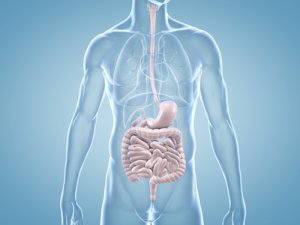 Every day, the intestinal immune system has to defend itself against hordes of microbes and toxins. If it fails to function optimally, there is an increased risk of infections, allergies, and inflammatory diseases. More and more research reveals that essential nutrients help to control the intestinal immune defense. Also, new research shows how important a well-functioning immune system is for our digestion and health in general. This article takes a closer look at the vitamins that are known to be particularly important for the intestinal immune system. Another thing that is vital is to have adequate amounts of gastric juice.
Every day, the intestinal immune system has to defend itself against hordes of microbes and toxins. If it fails to function optimally, there is an increased risk of infections, allergies, and inflammatory diseases. More and more research reveals that essential nutrients help to control the intestinal immune defense. Also, new research shows how important a well-functioning immune system is for our digestion and health in general. This article takes a closer look at the vitamins that are known to be particularly important for the intestinal immune system. Another thing that is vital is to have adequate amounts of gastric juice.
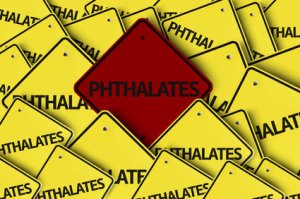 According to a new study, hormone-disrupting substances like bisphenol-A and phthalates can lower levels of vitamin D in the bloodstream. During the winter period, it is a problem to get enough vitamin D to begin with, as the sun sits low in the sky and we only get a limited amount of the nutrient from our diet. The combination of too little vitamin D and hormone-disrupting substances is rather unfortunate because lack of vitamin D increases the risk of infections, winter depression, diabetes, cardiovascular diseases, osteoporosis, and cancer.
According to a new study, hormone-disrupting substances like bisphenol-A and phthalates can lower levels of vitamin D in the bloodstream. During the winter period, it is a problem to get enough vitamin D to begin with, as the sun sits low in the sky and we only get a limited amount of the nutrient from our diet. The combination of too little vitamin D and hormone-disrupting substances is rather unfortunate because lack of vitamin D increases the risk of infections, winter depression, diabetes, cardiovascular diseases, osteoporosis, and cancer.
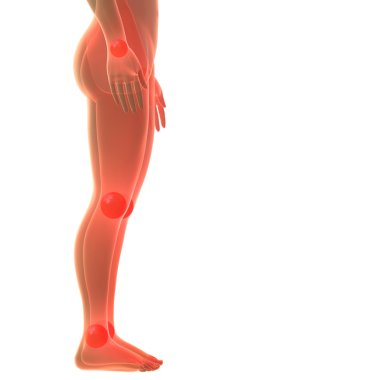 Choose natural solutions instead of potentially lethal medicine
Choose natural solutions instead of potentially lethal medicine
Rheumatic diseases and aching joints are extremely common. One in eight Europeans takes arthritis medication, thereby increasing his or her risk of numerous side effects and premature death. Rheumatism and aching joints are typically caused by inflammation. Research shows that the problems can often be treated with dietary changes and the use of supplements that address the underlying causes and make the pain vanish by itself.
Arthritis drugs take more lives than diabetes and traffic accidents. 7-8% of Europeans use anti-inflammatory painkillers that increase their risk of sensitive gastro-intestinal mucous membranes, indigestion, bleeding ulcers, heart disease, and thrombosis. Calculations show that arthritis drugs take more lives every year than traffic fatalities and diabetes together, making this type of medicine a far greater threat. Most people are unaware of this.
 According to a new study that is published in the British Journal of Nutrition, even minor zinc deficiencies may cause poor digestion, skin problems, and fatigue - and lead to numerous other health problems in the long run. You should therefore avoid zinc shortages, and people with poor diets, vegans, vegetarians, and older people should make sure to get enough zinc.
According to a new study that is published in the British Journal of Nutrition, even minor zinc deficiencies may cause poor digestion, skin problems, and fatigue - and lead to numerous other health problems in the long run. You should therefore avoid zinc shortages, and people with poor diets, vegans, vegetarians, and older people should make sure to get enough zinc.
- a typical problem that is seen with ageing, overweight, diabetes and other chronic diseases
 Chronic low-grade inflammation has a negative effect on our health. It pummels the body with free radical damage to healthy cells and tissue. Chronic low-grade inflammation is linked to ageing, overweight, type 2 diabetes, cardiovascular disease, and other health problems. In the case of infections, there is also a risk that the immune defense overreacts with hyperinflammation, which can turn out to be very problematic. Now, science has discovered that our gut flora also affects the immune system. Some gut bacteria have a pro-inflammatory effect, while others help fight inflammation. Fish oil’s anti-inflammatory effect involves other mechanisms. Supplements of beneficial gut bacteria, better known as probiotics, and fish oil supplements help increase gut flora diversity. This is good for fighting inflammation, according to a new study published in Nutrients. Another thing to make sure of is to get enough vitamin D.
Chronic low-grade inflammation has a negative effect on our health. It pummels the body with free radical damage to healthy cells and tissue. Chronic low-grade inflammation is linked to ageing, overweight, type 2 diabetes, cardiovascular disease, and other health problems. In the case of infections, there is also a risk that the immune defense overreacts with hyperinflammation, which can turn out to be very problematic. Now, science has discovered that our gut flora also affects the immune system. Some gut bacteria have a pro-inflammatory effect, while others help fight inflammation. Fish oil’s anti-inflammatory effect involves other mechanisms. Supplements of beneficial gut bacteria, better known as probiotics, and fish oil supplements help increase gut flora diversity. This is good for fighting inflammation, according to a new study published in Nutrients. Another thing to make sure of is to get enough vitamin D.
 In a study from Ohio State University researchers have shown that a group of healthy young students who took supplements of fish oil achieved a significant reduction of inflammation and more surprisingly: of anxiety. In addition, it seems likely that elderly and sick will get even more benefits of fish oil supplements.
In a study from Ohio State University researchers have shown that a group of healthy young students who took supplements of fish oil achieved a significant reduction of inflammation and more surprisingly: of anxiety. In addition, it seems likely that elderly and sick will get even more benefits of fish oil supplements.
 Asthma is the leading disease among children and adolescents in the Western world, and the rate has been going up for the past 20 years. A new Danish study that is published in the New England Journal of Medicine shows that pregnant women who take supplements of fish oil are much less likely to give birth to children that develop asthma later on. The question is how much fish oil it takes to obtain the positive effect.
Asthma is the leading disease among children and adolescents in the Western world, and the rate has been going up for the past 20 years. A new Danish study that is published in the New England Journal of Medicine shows that pregnant women who take supplements of fish oil are much less likely to give birth to children that develop asthma later on. The question is how much fish oil it takes to obtain the positive effect.
- which is why we need enough vitamin C, selenium, and other antioxidants
 Modern man is exposed to a lot of free radicals because of factors like stress, environmental toxins, etc. Free radicals are like “internal terrorists” that contribute to atherosclerosis, diabetes, Alzheimer’s disease, cancer, and a host of other diseases. Our only protection against free radicals are antioxidants from vitamins, minerals, and plant compounds. Antioxidants work in different ways. Being deficient in a single primary antioxidant such as selenium may leave the body vulnerable to oxidative stress and disease. What most people are unaware of is that free radicals are also essential, as they are a part of our energy turnover and immune defense. The question is how do we protect ourselves the best against infections, oxidative stress, and disease? What type of antioxidant do we get from dark chocolate, green tea, coffee and red wine? How does redox therapy with vitamin C in great quantities work on cancer patients? You can read more about these topics in the following.
Modern man is exposed to a lot of free radicals because of factors like stress, environmental toxins, etc. Free radicals are like “internal terrorists” that contribute to atherosclerosis, diabetes, Alzheimer’s disease, cancer, and a host of other diseases. Our only protection against free radicals are antioxidants from vitamins, minerals, and plant compounds. Antioxidants work in different ways. Being deficient in a single primary antioxidant such as selenium may leave the body vulnerable to oxidative stress and disease. What most people are unaware of is that free radicals are also essential, as they are a part of our energy turnover and immune defense. The question is how do we protect ourselves the best against infections, oxidative stress, and disease? What type of antioxidant do we get from dark chocolate, green tea, coffee and red wine? How does redox therapy with vitamin C in great quantities work on cancer patients? You can read more about these topics in the following.
 Zinc supplements help your immune defense fight colds faster. This was seen in a Finnish meta-analysis where the majority of cold-ridden subjects who took supplements had recovered from their colds after five days, as opposed to those who did not take extra zinc. It is important to choose high-quality zinc supplements, which the body is able to absorb. Moreover, it is vital that the dose is sufficiently high during those days where the immune system actively fights the cold. High-dosed zinc supplementation is not encouraged for therapeutic use in other cases.
Zinc supplements help your immune defense fight colds faster. This was seen in a Finnish meta-analysis where the majority of cold-ridden subjects who took supplements had recovered from their colds after five days, as opposed to those who did not take extra zinc. It is important to choose high-quality zinc supplements, which the body is able to absorb. Moreover, it is vital that the dose is sufficiently high during those days where the immune system actively fights the cold. High-dosed zinc supplementation is not encouraged for therapeutic use in other cases.
The H PV vaccine that is used as protection against cervical cancer has been subject to massive media coverage lately because it has serious side effects. But how do people make an informed choice? And is it possible to use specific essential nutrients to boost the immune system against HPV and possible side effects from this vaccine?
PV vaccine that is used as protection against cervical cancer has been subject to massive media coverage lately because it has serious side effects. But how do people make an informed choice? And is it possible to use specific essential nutrients to boost the immune system against HPV and possible side effects from this vaccine?
 Ageing is linked to uncontrolled, low-grade inflammation, also known as inflammaging, according to articles published in the journals Nature Medicine and Ageing and Disease. Although chronic inflammation is not felt directly it may set the stage for cardiovascular disease, rheumatism, Alzheimer’s disease, and cancer. Chronic inflammation may also cause virus infections like influenza and COVID-19 to become life-threatening because the immune defense suddenly overreacts and attacks healthy tissue. It is therefore vital for ageing people to protect themselves against chronic inflammation, which means getting plenty of vitamin D, selenium, coenzyme Q10, zinc, omega-3, and melatonin. These are all things that many older people often lack.
Ageing is linked to uncontrolled, low-grade inflammation, also known as inflammaging, according to articles published in the journals Nature Medicine and Ageing and Disease. Although chronic inflammation is not felt directly it may set the stage for cardiovascular disease, rheumatism, Alzheimer’s disease, and cancer. Chronic inflammation may also cause virus infections like influenza and COVID-19 to become life-threatening because the immune defense suddenly overreacts and attacks healthy tissue. It is therefore vital for ageing people to protect themselves against chronic inflammation, which means getting plenty of vitamin D, selenium, coenzyme Q10, zinc, omega-3, and melatonin. These are all things that many older people often lack.
 Chronic fatigue commonly follows in the wake of influenza, herpes, COVID-19, and other infections. The immune system does not function optimally, and the tiredness is caused by oxidative stress and inflammation. The condition is often accompanied by poor concentration, depression, and sleep disturbances. Oxidative stress is an imbalance between pro-inflammatory free radicals and protective antioxidants. Vitamin C happens to be one of the most potent antioxidants, and intravenous vitamin C therapy has been shown to reduce tiredness that follows after different types of virus infections, according to a review article in the scientific journal Nutrients. Here, the scientists also write about intravenous vitamin C therapy in connection with chronic fatigue syndrome following COVID-19 infections.
Chronic fatigue commonly follows in the wake of influenza, herpes, COVID-19, and other infections. The immune system does not function optimally, and the tiredness is caused by oxidative stress and inflammation. The condition is often accompanied by poor concentration, depression, and sleep disturbances. Oxidative stress is an imbalance between pro-inflammatory free radicals and protective antioxidants. Vitamin C happens to be one of the most potent antioxidants, and intravenous vitamin C therapy has been shown to reduce tiredness that follows after different types of virus infections, according to a review article in the scientific journal Nutrients. Here, the scientists also write about intravenous vitamin C therapy in connection with chronic fatigue syndrome following COVID-19 infections.
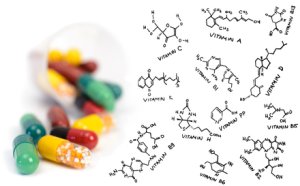 Many people take a multivitamin this time of year. However, even if the manufacturers really squeeze together the ingredients it is impossible to put enough vitamins and minerals in one pill to cover our actual needs. In fact, the manufacturing process determines if we are able to absorb the different nutrients in the first place, and that is important for them to work properly in the body. Therefore, it is vital that you choose a supplement that has good quality, and you must make sure to focus on the vitamins, minerals, and essential fatty acids that we humans typically tend to lack.
Many people take a multivitamin this time of year. However, even if the manufacturers really squeeze together the ingredients it is impossible to put enough vitamins and minerals in one pill to cover our actual needs. In fact, the manufacturing process determines if we are able to absorb the different nutrients in the first place, and that is important for them to work properly in the body. Therefore, it is vital that you choose a supplement that has good quality, and you must make sure to focus on the vitamins, minerals, and essential fatty acids that we humans typically tend to lack.
– and could even make them more dangerous
 Selenium is of vital importance to a strong immune defense. Still, selenium deficiency is a common problem and it increases the risk of viral infections such as influenza and the coronavirus from China, which is feared to turn into a global pandemic. It is a problem that selenium deficiency in infected animals and humans causes the virus to mutate and become more aggressive. Because of selenium’s important role as a powerful antioxidant, being deficient of this micronutrient may leave the body vulnerable to oxidative stress, which can cause tissue damage and complicate the virus infection. It is therefore important to get enough selenium at all times, as it also increases our resistance towards other viral infections such as herpes, HIV, and hepatitis, according to an article published in Nutrients.
Selenium is of vital importance to a strong immune defense. Still, selenium deficiency is a common problem and it increases the risk of viral infections such as influenza and the coronavirus from China, which is feared to turn into a global pandemic. It is a problem that selenium deficiency in infected animals and humans causes the virus to mutate and become more aggressive. Because of selenium’s important role as a powerful antioxidant, being deficient of this micronutrient may leave the body vulnerable to oxidative stress, which can cause tissue damage and complicate the virus infection. It is therefore important to get enough selenium at all times, as it also increases our resistance towards other viral infections such as herpes, HIV, and hepatitis, according to an article published in Nutrients.
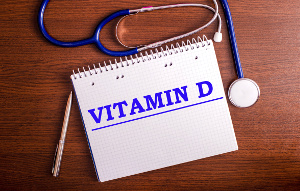 Vitamin D plays an overlooked role in the immune defense. Being deficient of the nutrient increases your risk of bacterial pneumonia by up to 60 percent, according to a large Danish study of 116,000 participants that was carried out by scientists from Herlev Hospital, Gentofte Hospital, and the University of Copenhagen.
Vitamin D plays an overlooked role in the immune defense. Being deficient of the nutrient increases your risk of bacterial pneumonia by up to 60 percent, according to a large Danish study of 116,000 participants that was carried out by scientists from Herlev Hospital, Gentofte Hospital, and the University of Copenhagen.
Because many older people, cancer patients, and other chronically ill individuals are at increased risk of respiratory infections and because bacterial pneumonia can be potentially lethal, the scientists see a huge potential in using vitamin D supplements to prevent the disease.
 It is hardly a coincidence that sore throats, colds, flus, and related complications such as sinus infections and pneumonia typically circulate during the winter period. They are primarily a result of having low vitamin D levels. During the winter, the sun sits too low in the sky to enable vitamin D synthesis in our skin, and we only have a limited amount of the nutrient stored in the liver. Good hand hygiene, warm soup, garlic, echinacea and other immune-boosting herbs alone will not deal with the problem, as they can never compensate for our lack of essential vitamin D, which the white blood cells of our immune system need in order to silently kill of virus. But how much vitamin D do we need, is it possible to get too much, and which mineral is necessary for activating the vitamin?
It is hardly a coincidence that sore throats, colds, flus, and related complications such as sinus infections and pneumonia typically circulate during the winter period. They are primarily a result of having low vitamin D levels. During the winter, the sun sits too low in the sky to enable vitamin D synthesis in our skin, and we only have a limited amount of the nutrient stored in the liver. Good hand hygiene, warm soup, garlic, echinacea and other immune-boosting herbs alone will not deal with the problem, as they can never compensate for our lack of essential vitamin D, which the white blood cells of our immune system need in order to silently kill of virus. But how much vitamin D do we need, is it possible to get too much, and which mineral is necessary for activating the vitamin?
- a disabling and potentially life-threatening complication
 Type 2 diabetes is currently treated with a number of different medical drugs. However, the medicine is not able to deal with the underlying causes of the disease that affects most organ systems. A Chinese study has demonstrated that vitamin D deficiency is linked to diabetic neuropathy, which is an insidious condition and is associated with inflammation, pain, amputation, circulatory failure, and early death.
Type 2 diabetes is currently treated with a number of different medical drugs. However, the medicine is not able to deal with the underlying causes of the disease that affects most organ systems. A Chinese study has demonstrated that vitamin D deficiency is linked to diabetic neuropathy, which is an insidious condition and is associated with inflammation, pain, amputation, circulatory failure, and early death.
It is important to get plenty of vitamin D at all times in order to prevent and treat the early phases of diabetic neuropathy.
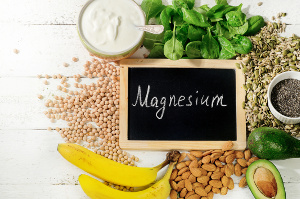 The ageing process and most chronic diseases like diabetes, cardiovascular disease, and cancer involve chronic inflammation that has the potential to damage healthy tissue. If acute hyperinflammation occurs, for example in connection with virus infections like influenza and COVID-19, the condition may become potentially life-threatening. It is therefore vital that the body can control the different inflammatory processes. One of the things that is needed for this is magnesium, according to a meta-analysis that is published in Nutrients. Here, the researchers look closer at how magnesium supplementation is able to reduce different pro-inflammatory markers. Magnesium also helps activate vitamin D, which is also necessary for controlling inflammation.
The ageing process and most chronic diseases like diabetes, cardiovascular disease, and cancer involve chronic inflammation that has the potential to damage healthy tissue. If acute hyperinflammation occurs, for example in connection with virus infections like influenza and COVID-19, the condition may become potentially life-threatening. It is therefore vital that the body can control the different inflammatory processes. One of the things that is needed for this is magnesium, according to a meta-analysis that is published in Nutrients. Here, the researchers look closer at how magnesium supplementation is able to reduce different pro-inflammatory markers. Magnesium also helps activate vitamin D, which is also necessary for controlling inflammation.
- that is involved in atherosclerosis, rheumatism, and most other chronic diseases
 Scientists from Mexico, Iran, and Australia have gathered data from several studies and focused on a certain protein that is a marker of inflammation in the body. According to the researchers, magnesium supplements can significantly reduce levels of this protein. Because magnesium deficiencies are widespread, it seems obvious to administer magnesium supplements as part of the anti-inflammatory treatment, especially because inflammation is not always easy to detect and may even set the stage for a host of other chronic diseases. It is important, however, to balance magnesium with calcium. This is a general rule both in the prevention and treatment of all chronic inflammatory conditions.
Scientists from Mexico, Iran, and Australia have gathered data from several studies and focused on a certain protein that is a marker of inflammation in the body. According to the researchers, magnesium supplements can significantly reduce levels of this protein. Because magnesium deficiencies are widespread, it seems obvious to administer magnesium supplements as part of the anti-inflammatory treatment, especially because inflammation is not always easy to detect and may even set the stage for a host of other chronic diseases. It is important, however, to balance magnesium with calcium. This is a general rule both in the prevention and treatment of all chronic inflammatory conditions.
 Nowadays, fruit, potatoes, and vegetables in general contain very little vitamin C, and the majority of people fail to eat the recommended amount of these foods, in the first place. Unhealthy diets and lack of vitamin C increase the risk of colds, influenza, and other infections, simply because the immune system consumes large amounts of vitamin C in connection with the first explosive attacks that prevent virus from causing an infection. Vitamin C also has an important role in battling infections and preventing them from dragging on and leading to complications such as bronchitis or pneumonia.
Nowadays, fruit, potatoes, and vegetables in general contain very little vitamin C, and the majority of people fail to eat the recommended amount of these foods, in the first place. Unhealthy diets and lack of vitamin C increase the risk of colds, influenza, and other infections, simply because the immune system consumes large amounts of vitamin C in connection with the first explosive attacks that prevent virus from causing an infection. Vitamin C also has an important role in battling infections and preventing them from dragging on and leading to complications such as bronchitis or pneumonia.
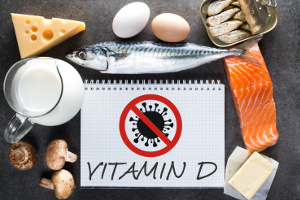 Vitamin D is vital for a well-functioning immune defense, yet a stunning 80 percent of patients hospitalized with COVID-19 lack the nutrient, according to a study published in The Journal of Clinical Endocrinology & Metabolism. Earlier research has shown that having too little vitamin D in your system increases the risk of life-threatening complications. It is also a well-known fact that vitamin D deficiency is a problem that is more widespread during the winter period, especially among exposed groups like seniors, nursing home residents, chronically ill, and dark-skinned people.
Vitamin D is vital for a well-functioning immune defense, yet a stunning 80 percent of patients hospitalized with COVID-19 lack the nutrient, according to a study published in The Journal of Clinical Endocrinology & Metabolism. Earlier research has shown that having too little vitamin D in your system increases the risk of life-threatening complications. It is also a well-known fact that vitamin D deficiency is a problem that is more widespread during the winter period, especially among exposed groups like seniors, nursing home residents, chronically ill, and dark-skinned people.
- but may he helped with Q10
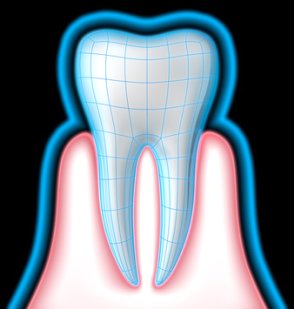 Periodontal disease (tooth loss) affects most of us at some point. Because it is an insidious disease, it is important to set in with early prevention on several accounts. It is not a matter of saving your teeth and smile - your heart and cardiovascular system are also a target of the ailment.
Periodontal disease (tooth loss) affects most of us at some point. Because it is an insidious disease, it is important to set in with early prevention on several accounts. It is not a matter of saving your teeth and smile - your heart and cardiovascular system are also a target of the ailment.
People suffering from periodontal disease often lack Q10 in their gum tissue. This was shown as early as in 1971. In the meantime, numerous studies have demonstrated that supplements of Q10 have a positive effect on the feared disease. Because the body has difficulty with absorbing Q10 from supplements it is important to choose products that can document their bio-availability. It may also be a good idea to consider taking extra selenium, as this trace element optimizes the effect of Q10.
 According to WHO, sepsis is the third-most common cause of death, following cardiovascular disease and death. Sepsis is a result of the immune defense overreacting to an infection in the bloodstream. According to a new Slovakian study published in Bratislava Medical Journal, if you start supplementing with Q10 early in the treatment phase, it may reduce the symptoms and improve the chances of survival. Read more about another nutrient that contributes to the prevention of sepsis.
According to WHO, sepsis is the third-most common cause of death, following cardiovascular disease and death. Sepsis is a result of the immune defense overreacting to an infection in the bloodstream. According to a new Slovakian study published in Bratislava Medical Journal, if you start supplementing with Q10 early in the treatment phase, it may reduce the symptoms and improve the chances of survival. Read more about another nutrient that contributes to the prevention of sepsis.
 The immune system needs selenium every single day. Lack of this nutrient increases your risk of virus infections, inflammation, and cancer. It is a huge problem that many of us get too little selenium because of factors such as nutrient-depleted soil and unhealthy eating habits.
The immune system needs selenium every single day. Lack of this nutrient increases your risk of virus infections, inflammation, and cancer. It is a huge problem that many of us get too little selenium because of factors such as nutrient-depleted soil and unhealthy eating habits.
 ALARM: We are getting far too little vitamin D
ALARM: We are getting far too little vitamin D
The recommended dietary intake of vitamin D in the UK is 17 times lower that it should ideally be in order to provide sufficient protection against disease. That is what two teams of US scientists have concluded independently of each other.
 An only six-month-old baby died of heart failure and the following complications. The tragedy was a result of severe vitamin D deficiency, which, according to researchers at the University of Birmingham, could have been avoided with better control. They now demand that the health authorities change their policy regarding vitamin D supplements, so that they take into account the special needs of babies, pregnant women, dark-skinned individuals, and population groups that are more likely to be vitamin D-deficient. With this tragic death, which does not stand alone, we are only seeing the tip of the iceberg. Having too little vitamin D can also increase your risk of weak bones, infections, asthma, autism, and many other diseases.
An only six-month-old baby died of heart failure and the following complications. The tragedy was a result of severe vitamin D deficiency, which, according to researchers at the University of Birmingham, could have been avoided with better control. They now demand that the health authorities change their policy regarding vitamin D supplements, so that they take into account the special needs of babies, pregnant women, dark-skinned individuals, and population groups that are more likely to be vitamin D-deficient. With this tragic death, which does not stand alone, we are only seeing the tip of the iceberg. Having too little vitamin D can also increase your risk of weak bones, infections, asthma, autism, and many other diseases.
- and there are no side effects
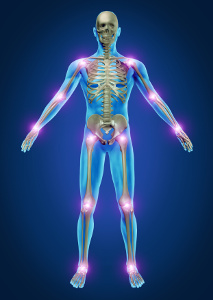 Rheumatism is the most widespread chronic disease in Denmark, and many people experience a worsening of the symptoms during the winter period. The majority of people take anti-inflammatory drugs for years, but this increases their risk of bleeding stomach ulcers and other side effects, not to mention premature death. The underlying cause is chronic inflammation and it is a problem that is not properly addressed. For decades, Nobel Prize-winners and other scientists have revealed what causes chronic inflammation and how the problem in many cases can be helped with various supplements that help cure the pain. In the following, we have summarized a lot of the research that has been conducted with vitamin D, fish oil, magnesium, selenium, zinc, and glucosamine, and we have looked at why the anti-inflammatory lifestyle has become such a health trend. It is essential to use supplements that contain the different ingredients in therapeutic doses and with a quality that allows the body to absorb and utilize the active compounds.
Rheumatism is the most widespread chronic disease in Denmark, and many people experience a worsening of the symptoms during the winter period. The majority of people take anti-inflammatory drugs for years, but this increases their risk of bleeding stomach ulcers and other side effects, not to mention premature death. The underlying cause is chronic inflammation and it is a problem that is not properly addressed. For decades, Nobel Prize-winners and other scientists have revealed what causes chronic inflammation and how the problem in many cases can be helped with various supplements that help cure the pain. In the following, we have summarized a lot of the research that has been conducted with vitamin D, fish oil, magnesium, selenium, zinc, and glucosamine, and we have looked at why the anti-inflammatory lifestyle has become such a health trend. It is essential to use supplements that contain the different ingredients in therapeutic doses and with a quality that allows the body to absorb and utilize the active compounds.
 We all get exposed to mercury, a neurotoxin that is found to a great extent in nature and in our environment. According to an EU report, mercury is a large economic burden to society because of the costs related to lowered IQ levels. For that reason alone, we should aim to limit our exposure to mercury and also take a closer look at how selenium protects against the harmful heavy metal – provided our selenium levels are adequately high.
We all get exposed to mercury, a neurotoxin that is found to a great extent in nature and in our environment. According to an EU report, mercury is a large economic burden to society because of the costs related to lowered IQ levels. For that reason alone, we should aim to limit our exposure to mercury and also take a closer look at how selenium protects against the harmful heavy metal – provided our selenium levels are adequately high.
 The corona crisis has shed new light on the importance of having a strong immune defense, one that protects us against virus infections in the long run. Selenium plays a vital role for a number of different reasons but, unfortunately, there is widespread deficiency which increases the risk of infections and related complications. In a new review article that is published in International Journal of Molecular Sciences, the authors look closer at selenium’s role in connection with different types of virus infections such as influenza, HIV, and hepatitis with particular focus on COVID-19. The purpose of their article is to inform about new nutritional strategies that may contribute to a strong and well-functioning immune defense – mainly when it comes to COVID-19 and virus types that tend to mutate all the time.
The corona crisis has shed new light on the importance of having a strong immune defense, one that protects us against virus infections in the long run. Selenium plays a vital role for a number of different reasons but, unfortunately, there is widespread deficiency which increases the risk of infections and related complications. In a new review article that is published in International Journal of Molecular Sciences, the authors look closer at selenium’s role in connection with different types of virus infections such as influenza, HIV, and hepatitis with particular focus on COVID-19. The purpose of their article is to inform about new nutritional strategies that may contribute to a strong and well-functioning immune defense – mainly when it comes to COVID-19 and virus types that tend to mutate all the time.
– and lack of vitamin D increases the risk
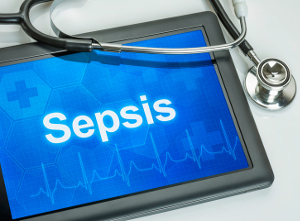 The minority of people think about the danger of sepsis, which is a serious blood poisoning. However, according to WHO, sepsis is rather common and it is the third leading cause of death, only surpassed by cardiovascular diseases and cancer. According to Ugeskrift for Læger (the journal of the Danish Medical Association), it is a paradox that Denmark has no official registry of the rate and high mortality of sepsis. Also, the risk of getting sepsis and dying of the condition is heavily increased if you lack vitamin D, according to an Iranian study that is published in Archives of Academic Emergency Medicine. We need to focus more on sepsis, including diagnosis, swift treatment, and prevention of this life-threatening disease.
The minority of people think about the danger of sepsis, which is a serious blood poisoning. However, according to WHO, sepsis is rather common and it is the third leading cause of death, only surpassed by cardiovascular diseases and cancer. According to Ugeskrift for Læger (the journal of the Danish Medical Association), it is a paradox that Denmark has no official registry of the rate and high mortality of sepsis. Also, the risk of getting sepsis and dying of the condition is heavily increased if you lack vitamin D, according to an Iranian study that is published in Archives of Academic Emergency Medicine. We need to focus more on sepsis, including diagnosis, swift treatment, and prevention of this life-threatening disease.
 During the winter period, many of us have runny noses and some may end up in bed with a bout of flu. Now is the time to prime your immune system by getting all those vitamins and minerals that your diet is not always able to provide you. That way you can ward off germs and avoid unnecessary sick days. But what effect does vitamin C, vitamin D, selenium, and zinc have on the immune system’s different “troops”, and how much do we need?
During the winter period, many of us have runny noses and some may end up in bed with a bout of flu. Now is the time to prime your immune system by getting all those vitamins and minerals that your diet is not always able to provide you. That way you can ward off germs and avoid unnecessary sick days. But what effect does vitamin C, vitamin D, selenium, and zinc have on the immune system’s different “troops”, and how much do we need?
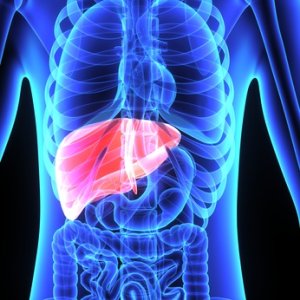 Researchers have found that sufferers of non-alcoholic fatty liver disease (NAFLD) can protect themselves by taking the vitamin-like substance coenzyme Q10.
Researchers have found that sufferers of non-alcoholic fatty liver disease (NAFLD) can protect themselves by taking the vitamin-like substance coenzyme Q10.
Non-alcoholic fatty liver disease is a chronic liver disorder that involves inflammation of the liver and may worsen through a four-stage progression that may eventually lead to cirrhosis and liver cancer. The condition, which is characterized by a build-up of fat in the liver cells and typically affects people who are diabetic or overweight. There is currently no medical treatment for NAFLD but science has found that the vitamin-like substance coenzyme Q10 may be able to improve the liver’s fat metabolism and reduce the inflammation.
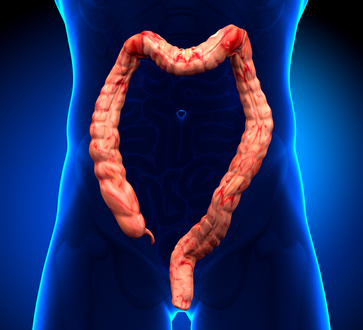 A recently published study shows promising results of giving daily supplements of vitamin D to sufferers of Crohn's disease. Apparently, the vitamin improves the intestinal barrier dysfunction associated with the ailment.
A recently published study shows promising results of giving daily supplements of vitamin D to sufferers of Crohn's disease. Apparently, the vitamin improves the intestinal barrier dysfunction associated with the ailment.
- and the huge difference between the omega-3 forms ALA, EPA, and DHA
 Most people lack omega-3 fatty acids that are vital for the brain, the nervous system, and the cardiovascular system. Omega-3 fatty acids also have anti-inflammatory and cancer-fighting properties. It is important to consume omega-3 and omega-6 fatty acids in the right balance in order to benefit from their many health effects. But how do we make sure to get enough omega-3 fatty acids that we can utilize? And what is the difference between ALA, EPA, and DHA?
Most people lack omega-3 fatty acids that are vital for the brain, the nervous system, and the cardiovascular system. Omega-3 fatty acids also have anti-inflammatory and cancer-fighting properties. It is important to consume omega-3 and omega-6 fatty acids in the right balance in order to benefit from their many health effects. But how do we make sure to get enough omega-3 fatty acids that we can utilize? And what is the difference between ALA, EPA, and DHA?
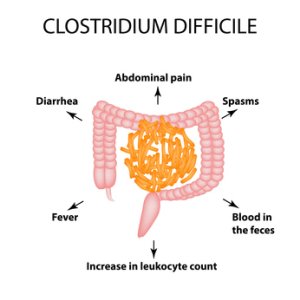 Clostridium difficile is a bacterium that causes diarrhea and intestinal infection. The infection may even be life-threatening. A new American study that is published in PLoS Pathogens shows that this bacterium can only thrive with an overload of calcium in the intestinal system. Such a calcium excess can be caused by overconsumption of calcium, lack of vitamin D, and regular use of antacids.
Clostridium difficile is a bacterium that causes diarrhea and intestinal infection. The infection may even be life-threatening. A new American study that is published in PLoS Pathogens shows that this bacterium can only thrive with an overload of calcium in the intestinal system. Such a calcium excess can be caused by overconsumption of calcium, lack of vitamin D, and regular use of antacids.
 Undernourishment typically affects the elderly, those with diseases, addicts, and people with eating disorders. The condition increases the risk of serious diseases and repeated hospitalizations and is an enormous economic burden to society. Many undernourished people suffer from loss of appetite, a problem that can often be stimulated with improved diets and supplements of B vitamins.
Undernourishment typically affects the elderly, those with diseases, addicts, and people with eating disorders. The condition increases the risk of serious diseases and repeated hospitalizations and is an enormous economic burden to society. Many undernourished people suffer from loss of appetite, a problem that can often be stimulated with improved diets and supplements of B vitamins.
 Vitamin D is essential for the immune defense but many of us are deficient of the nutrient during the dark winter period. The Danish Veterinary and Food Administration therefore recommends for everyone to take a vitamin D supplement in the winter months and that vulnerable population groups supplement all year round. Many people are unaware that being vitamin D-deficient contributes to new waves of COVID-19 and other types of viruses while increasing the risk of infections becoming complicated and life-threatening. This was demonstrated in multiple studies that have been published over the past 18 months. Leading scientists call for immediate action in terms of optimizing vitamin D levels in the population to help fight COVID-19 and other virus infections, simply because vaccines only have limited effect.
Vitamin D is essential for the immune defense but many of us are deficient of the nutrient during the dark winter period. The Danish Veterinary and Food Administration therefore recommends for everyone to take a vitamin D supplement in the winter months and that vulnerable population groups supplement all year round. Many people are unaware that being vitamin D-deficient contributes to new waves of COVID-19 and other types of viruses while increasing the risk of infections becoming complicated and life-threatening. This was demonstrated in multiple studies that have been published over the past 18 months. Leading scientists call for immediate action in terms of optimizing vitamin D levels in the population to help fight COVID-19 and other virus infections, simply because vaccines only have limited effect.
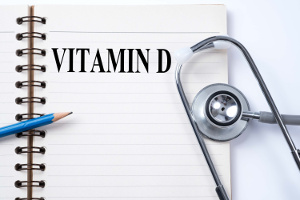 Vitamin D is essential for the immune defense. Because deficiencies of the nutrient are becoming increasingly common and vaccines only have limited effect, we can expect new waves of COVID-19 during the winter period. Vitamin D counteracts chronic inflammation which is seen in rheumatoid arthritis, diabetes, and other chronic diseases. Multiple studies have shown a link between low blood levels of vitamin D and the occurrence of these diseases. In a new meta-analysis that is published in Molecular and Cellular Biochemistry, scientists look closer at the scientific data for risk factors involved with vitamin D deficiencies and the advantages of taking vitamin D supplements in connection with COVID-19, rheumatoid arthritis, and other inflammatory diseases.
Vitamin D is essential for the immune defense. Because deficiencies of the nutrient are becoming increasingly common and vaccines only have limited effect, we can expect new waves of COVID-19 during the winter period. Vitamin D counteracts chronic inflammation which is seen in rheumatoid arthritis, diabetes, and other chronic diseases. Multiple studies have shown a link between low blood levels of vitamin D and the occurrence of these diseases. In a new meta-analysis that is published in Molecular and Cellular Biochemistry, scientists look closer at the scientific data for risk factors involved with vitamin D deficiencies and the advantages of taking vitamin D supplements in connection with COVID-19, rheumatoid arthritis, and other inflammatory diseases.
 Many people suffer from chronic inflammation, which sets the stage for a host of diseases such as asthma, type 2 diabetes, atherosclerosis, depression, cancer, rheumatoid arthritis, and other autoimmune diseases. The presence of chronic inflammation may also make infections such as coronavirus and influenza potentially life-threatening by derailing the immune defense. According to a new study from the University of South Australia that is published in International Journal of Epidemiology, it appears that vitamin D can inhibit inflammation by way of different mechanisms, thereby reducing the risk of a variety of diseases and even premature death. The need for vitamin D varies from person to person. Also, it is essential to make sure that blood levels of the nutrient are optimal and that vitamin D is properly activated in the body.
Many people suffer from chronic inflammation, which sets the stage for a host of diseases such as asthma, type 2 diabetes, atherosclerosis, depression, cancer, rheumatoid arthritis, and other autoimmune diseases. The presence of chronic inflammation may also make infections such as coronavirus and influenza potentially life-threatening by derailing the immune defense. According to a new study from the University of South Australia that is published in International Journal of Epidemiology, it appears that vitamin D can inhibit inflammation by way of different mechanisms, thereby reducing the risk of a variety of diseases and even premature death. The need for vitamin D varies from person to person. Also, it is essential to make sure that blood levels of the nutrient are optimal and that vitamin D is properly activated in the body.
- which is involved in asthma, rheumatoid arthritis and most chronic diseases
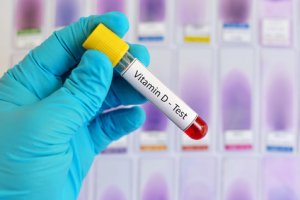 This time of year, many people suffer from asthma, aching joints, or an exacerbation of other chronic diseases that involve inflammation. This is often because they lack vitamin D, as the sun sits too low in the sky for us humans to be able to synthesize the vitamin. Also, the diet and normal vitamin pills only provide minimal amounts vitamin D. It has been known for a long time that vitamin D counteracts inflammation. Now, a large systematic study is planned to investigate how supplementing with large quantities of vitamin D can affect the molecular mechanisms that counteract inflammation.
This time of year, many people suffer from asthma, aching joints, or an exacerbation of other chronic diseases that involve inflammation. This is often because they lack vitamin D, as the sun sits too low in the sky for us humans to be able to synthesize the vitamin. Also, the diet and normal vitamin pills only provide minimal amounts vitamin D. It has been known for a long time that vitamin D counteracts inflammation. Now, a large systematic study is planned to investigate how supplementing with large quantities of vitamin D can affect the molecular mechanisms that counteract inflammation.
 It is hardly a coincidence that so many of us contract virus infections in the course of the winter. It is because we lack vitamin D, which we are unable to synthesize when the sun sits too low in the sky. Danish scientists have discovered how vitamin D activates the immune system, and a comprehensive meta-analysis shows how vitamin D supplements can prevent colds, flus, and related complications.
It is hardly a coincidence that so many of us contract virus infections in the course of the winter. It is because we lack vitamin D, which we are unable to synthesize when the sun sits too low in the sky. Danish scientists have discovered how vitamin D activates the immune system, and a comprehensive meta-analysis shows how vitamin D supplements can prevent colds, flus, and related complications.
- and may save the lives of many weak and older people
 Supplementing with high doses of vitamin D may lower the rate of acute airway infections by up to 40 per cent. This simple trick may have the potential to save millions of lives, as many older people, cancer patients and others people with impaired resistance die of pneumonia.
Supplementing with high doses of vitamin D may lower the rate of acute airway infections by up to 40 per cent. This simple trick may have the potential to save millions of lives, as many older people, cancer patients and others people with impaired resistance die of pneumonia.
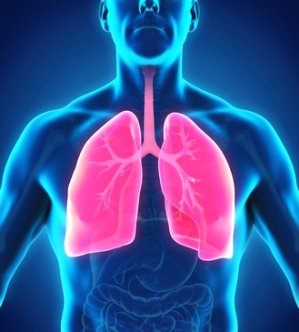 According to a Cochrane review, supplementing asthma medication with vitamin D may halve the risk of having a severe asthma attack and improve quality of life for those who suffer from this condition.
According to a Cochrane review, supplementing asthma medication with vitamin D may halve the risk of having a severe asthma attack and improve quality of life for those who suffer from this condition.
- that cause many sick days and even deaths
 Vitamin D supplements prevent colds, influenza, and intercurrent complications. This was seen in a large meta-analysis emphasizing that vitamin D is not only important for bone health but also for the immune system, which may require larger quantities. Because many old people or weakened individuals die of pneumonia, supplementing with vitamin D may potentially save millions of lives.
Vitamin D supplements prevent colds, influenza, and intercurrent complications. This was seen in a large meta-analysis emphasizing that vitamin D is not only important for bone health but also for the immune system, which may require larger quantities. Because many old people or weakened individuals die of pneumonia, supplementing with vitamin D may potentially save millions of lives.
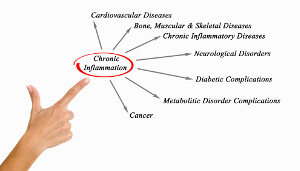 According to WHO, chronic inflammation is the leading cause of death worldwide. Although it is not something that can be felt as such, chronic inflammation sets the stage for a host of different diseases. In a new review article that is published in StatPearls, the authors look closer at why chronic inflammation is so dangerous and how a healthier lifestyle with vitamin D, selenium, magnesium, zinc, and fish oil can help fight the inflammation and prevent the many different diseases and early death that follow in its wake.
According to WHO, chronic inflammation is the leading cause of death worldwide. Although it is not something that can be felt as such, chronic inflammation sets the stage for a host of different diseases. In a new review article that is published in StatPearls, the authors look closer at why chronic inflammation is so dangerous and how a healthier lifestyle with vitamin D, selenium, magnesium, zinc, and fish oil can help fight the inflammation and prevent the many different diseases and early death that follow in its wake.
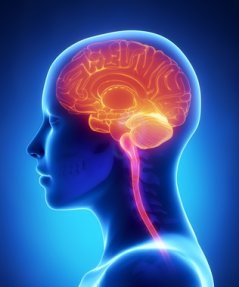 Vitamin C is extremely important for the brain’s blood vessels, nerve cells, neurotransmitters, and connective tissue. An estimated 10 percent of the adult population is vitamin C deficient without specific symptoms. According to a scientific article in the Danish journal Aktuel Videnskab, vitamin C deficiency during pregnancy may harm brain development in the fetus.
Vitamin C is extremely important for the brain’s blood vessels, nerve cells, neurotransmitters, and connective tissue. An estimated 10 percent of the adult population is vitamin C deficient without specific symptoms. According to a scientific article in the Danish journal Aktuel Videnskab, vitamin C deficiency during pregnancy may harm brain development in the fetus.
 Zinc strengthens the immune defense and controls inflammatory conditions such as eczema. According to a Finnish meta-analysis, high-dosed zinc supplements can help the immune defense fight a regular cold much faster. It turns out that there are widespread zinc deficiencies. First of all, sugar, birth control pills, inorganic iron supplements, and normal ageing processes impair the body’s zinc uptake. Secondly, it may be difficult to get enough zinc if you are on a vegetarian or vegan diet. Not only does a zinc deficiency have a negative effect on your immune defense and skin health, it also upsets the countless enzymatic processes in which zinc is involved.
Zinc strengthens the immune defense and controls inflammatory conditions such as eczema. According to a Finnish meta-analysis, high-dosed zinc supplements can help the immune defense fight a regular cold much faster. It turns out that there are widespread zinc deficiencies. First of all, sugar, birth control pills, inorganic iron supplements, and normal ageing processes impair the body’s zinc uptake. Secondly, it may be difficult to get enough zinc if you are on a vegetarian or vegan diet. Not only does a zinc deficiency have a negative effect on your immune defense and skin health, it also upsets the countless enzymatic processes in which zinc is involved.
- here is a check list of typical signs and diseases
 An estimated two billion people worldwide lack zinc. The essential trace element is involved in more than 1,000 different enzyme processes, besides being a powerful antioxidant that protects the body’s cells. Even minor zinc deficiencies can lead to impaired digestion, infections, skin problems, fatigue, impaired fertility, and DNA damage. Such deficiencies can eventually increase the risk of cancer and other diseases. People with unhealthy diets, vegetarians, vegans, older people, and pregnant and breastfeeding women are at particular risk of lacking zinc. Even if your diet provides sufficient amounts of zinc, different factors can affect the uptake and utilization of the nutrient, thereby increasing your body’s actual need.
An estimated two billion people worldwide lack zinc. The essential trace element is involved in more than 1,000 different enzyme processes, besides being a powerful antioxidant that protects the body’s cells. Even minor zinc deficiencies can lead to impaired digestion, infections, skin problems, fatigue, impaired fertility, and DNA damage. Such deficiencies can eventually increase the risk of cancer and other diseases. People with unhealthy diets, vegetarians, vegans, older people, and pregnant and breastfeeding women are at particular risk of lacking zinc. Even if your diet provides sufficient amounts of zinc, different factors can affect the uptake and utilization of the nutrient, thereby increasing your body’s actual need.
- that is the common thread in most chronic diseases
 Lack of dietary zinc may disrupt the immune defense and increase your risk of inflammation, which is the common thread in most diseases such as eczema, rheumatism, diabetes, and cancer. Zinc’s underlying mechanisms used to be relatively unknown, but a new study published in the science journal Immunology shows that zinc regulates the white blood cells of the immune system plus the formation of various proteins that are important for controlling inflammatory processes. Unfortunately, zinc deficiencies are widespread for a number of reasons.
Lack of dietary zinc may disrupt the immune defense and increase your risk of inflammation, which is the common thread in most diseases such as eczema, rheumatism, diabetes, and cancer. Zinc’s underlying mechanisms used to be relatively unknown, but a new study published in the science journal Immunology shows that zinc regulates the white blood cells of the immune system plus the formation of various proteins that are important for controlling inflammatory processes. Unfortunately, zinc deficiencies are widespread for a number of reasons.
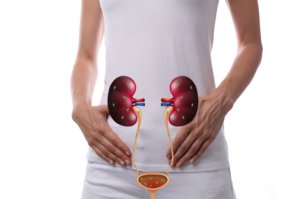 Bladder infection is one of the most widespread bacterial infections. It can lead to serious complications such as kidney infections and blood poisoning. A team of scientists from University of Queensland in Australia has discovered new details about zinc and its role in the immune defense, and how zinc helps the white blood cells fight coli bacteria that are the main cause of bladder infections. Women are more exposed than men, and there are some rather easy ways for them to prevent coli bacteria from spreading to the urinary tract.
Bladder infection is one of the most widespread bacterial infections. It can lead to serious complications such as kidney infections and blood poisoning. A team of scientists from University of Queensland in Australia has discovered new details about zinc and its role in the immune defense, and how zinc helps the white blood cells fight coli bacteria that are the main cause of bladder infections. Women are more exposed than men, and there are some rather easy ways for them to prevent coli bacteria from spreading to the urinary tract.
 The mineral zinc has demonstrated a surprising ability to help the liver fight virus infections and prevent tissue damage caused by chronic liver diseases. By regulating a specific protein, zinc both strengthens the immune defense and counteracts undesirable inflammation. This was shown in a new Australian study headed by scientists from Westmead Institute for Medical Research.
The mineral zinc has demonstrated a surprising ability to help the liver fight virus infections and prevent tissue damage caused by chronic liver diseases. By regulating a specific protein, zinc both strengthens the immune defense and counteracts undesirable inflammation. This was shown in a new Australian study headed by scientists from Westmead Institute for Medical Research.
It also turns out that minor to moderate zinc deficiencies are rather common. Most importantly, sugar, birth control pills, inorganic iron supplements, and ageing processes impair the body’s ability to absorb zinc. Moreover, it is often difficult to get enough zinc from vegetarian and vegan diets. Being zinc-deficient takes its toll on the immune system and the liver, but also has a negative impact on the countless enzyme processes that involve zinc.
– but will enrichment do the trick?
 Even minor zinc deficiencies may cause poor digestion, infections, skin problems, and fatigue – and many other diseases may occur along the way. A new study shows that a diet with as little as four extra mg of zinc daily may strengthen cellular DNA and help protect the body. The four milligrams of zinc are about the same as populations with deficiency symptoms can get by eating zinc-enriched wheat and rice.
Even minor zinc deficiencies may cause poor digestion, infections, skin problems, and fatigue – and many other diseases may occur along the way. A new study shows that a diet with as little as four extra mg of zinc daily may strengthen cellular DNA and help protect the body. The four milligrams of zinc are about the same as populations with deficiency symptoms can get by eating zinc-enriched wheat and rice.
 Stress is a large problem for many people. It is believed that the majority of people who consult their physician do it because of stress-related problems. Many people try to relieve their stress with sweets, coffee, alcohol, painkillers, and sleeping medication just to get through the day. However, in the long run, this can turn into a vicious cycle that increases your risk of disease and faster ageing. There are dozens of books about stress that can be useful for solving problems and slowing down your pace, but don’t forget that stress is also physiological. It is a condition that deteriorates tissues, burdens the body with free radicals and increases your need for B-vitamins, vitamin C, magnesium, selenium and coenzyme Q10. If you make sure to get the necessary essential nutrients before it is too late, you can cope with more.
Stress is a large problem for many people. It is believed that the majority of people who consult their physician do it because of stress-related problems. Many people try to relieve their stress with sweets, coffee, alcohol, painkillers, and sleeping medication just to get through the day. However, in the long run, this can turn into a vicious cycle that increases your risk of disease and faster ageing. There are dozens of books about stress that can be useful for solving problems and slowing down your pace, but don’t forget that stress is also physiological. It is a condition that deteriorates tissues, burdens the body with free radicals and increases your need for B-vitamins, vitamin C, magnesium, selenium and coenzyme Q10. If you make sure to get the necessary essential nutrients before it is too late, you can cope with more.







 Magnesium is important for numerous physiological functions. In a new review article published in Nutrients, researchers have looked at the relation between the body’s magnesium levels and a variety of different ageing markers. Also, they hypothesize that optimal intake of magnesium throughout life is an easy and inexpensive way to obtain healthy ageing.
Magnesium is important for numerous physiological functions. In a new review article published in Nutrients, researchers have looked at the relation between the body’s magnesium levels and a variety of different ageing markers. Also, they hypothesize that optimal intake of magnesium throughout life is an easy and inexpensive way to obtain healthy ageing.

 Even if you eat a healthy and balanced diet, it can be difficult to get enough selenium because of climate changes and nutrient depletion of the soil, especially in Europe. This was shown in a study conducted by Swiss scientists. Selenium is very important for the immune system, but how much do we need to be optimally protected against infections? There also appears to be a connection between widespread selenium deficiency and the increased rate of cancer.
Even if you eat a healthy and balanced diet, it can be difficult to get enough selenium because of climate changes and nutrient depletion of the soil, especially in Europe. This was shown in a study conducted by Swiss scientists. Selenium is very important for the immune system, but how much do we need to be optimally protected against infections? There also appears to be a connection between widespread selenium deficiency and the increased rate of cancer. Taking a supplement of vitamin D in combination with your prescription asthma medicine may halve your risk of an asthma attack that would require hospitalization, according to a new meta-analysis from Queen Mary University in London (QMUL). A vitamin D deficiency alone, which is rather common at northern latitudes, can increase the risk of asthma. Therefore, it is vital to make sure to have sufficiently high levels of this nutrient all year round to protect your respiratory tract.
Taking a supplement of vitamin D in combination with your prescription asthma medicine may halve your risk of an asthma attack that would require hospitalization, according to a new meta-analysis from Queen Mary University in London (QMUL). A vitamin D deficiency alone, which is rather common at northern latitudes, can increase the risk of asthma. Therefore, it is vital to make sure to have sufficiently high levels of this nutrient all year round to protect your respiratory tract. Vitamin C is essential for the immune defense for a number of reasons. According to a review of 12 recent studies, vitamin C administered in sufficiently high doses can prevent severe COVID-19 infections and save lives. The problem is that most people fail to follow the official dietary guidelines for fruit and vegetable consumption, which is why so many people lack vitamin C. Another thing is that health authorities in general are unaware of the health benefits of vitamin C in therapeutic doses, even after 80 years of international research.
Vitamin C is essential for the immune defense for a number of reasons. According to a review of 12 recent studies, vitamin C administered in sufficiently high doses can prevent severe COVID-19 infections and save lives. The problem is that most people fail to follow the official dietary guidelines for fruit and vegetable consumption, which is why so many people lack vitamin C. Another thing is that health authorities in general are unaware of the health benefits of vitamin C in therapeutic doses, even after 80 years of international research. A new American study shows that chronic alcohol abuse impairs the ability of the pancreas to absorb vitamin C, and that increases the risk of infection of the pancreas (pancreatitis) and other diseases. Lack of certain B vitamins may also damage the pancreas and increase the risk of encephalitis
A new American study shows that chronic alcohol abuse impairs the ability of the pancreas to absorb vitamin C, and that increases the risk of infection of the pancreas (pancreatitis) and other diseases. Lack of certain B vitamins may also damage the pancreas and increase the risk of encephalitis
 Lack of vitamin D is rather common and taking large quantities of the nutrient can not only protect against virus infections like COVID-19 but even counteract the life-threatening complications in those affected with the disease, according to a new, comprehensive, Irish report (TILDA) from Trinity College Dublin (University of Dublin in Ireland). The TILDA report supports many other published studies showing that the immune system is unable to function without vitamin D. The main focus in the battle against COVID-19 is hygiene, isolation, and delayed immunization with vaccines. However, it is also essential to bolster the immune defense, as this determines the difference between being able to ward off the infection, suffer mild symptoms only, or succumb. The scientists recommend that all adults take a high-dosed vitamin D supplement, especially older people, nursing home residents, chronically ill people, hospital patients, health professionals and other exposed groups. That way, we are better protected against future epidemics.
Lack of vitamin D is rather common and taking large quantities of the nutrient can not only protect against virus infections like COVID-19 but even counteract the life-threatening complications in those affected with the disease, according to a new, comprehensive, Irish report (TILDA) from Trinity College Dublin (University of Dublin in Ireland). The TILDA report supports many other published studies showing that the immune system is unable to function without vitamin D. The main focus in the battle against COVID-19 is hygiene, isolation, and delayed immunization with vaccines. However, it is also essential to bolster the immune defense, as this determines the difference between being able to ward off the infection, suffer mild symptoms only, or succumb. The scientists recommend that all adults take a high-dosed vitamin D supplement, especially older people, nursing home residents, chronically ill people, hospital patients, health professionals and other exposed groups. That way, we are better protected against future epidemics. Every day, the intestinal immune system has to defend itself against hordes of microbes and toxins. If it fails to function optimally, there is an increased risk of infections, allergies, and inflammatory diseases. More and more research reveals that essential nutrients help to control the intestinal immune defense. Also, new research shows how important a well-functioning immune system is for our digestion and health in general. This article takes a closer look at the vitamins that are known to be particularly important for the intestinal immune system. Another thing that is vital is to have adequate amounts of gastric juice.
Every day, the intestinal immune system has to defend itself against hordes of microbes and toxins. If it fails to function optimally, there is an increased risk of infections, allergies, and inflammatory diseases. More and more research reveals that essential nutrients help to control the intestinal immune defense. Also, new research shows how important a well-functioning immune system is for our digestion and health in general. This article takes a closer look at the vitamins that are known to be particularly important for the intestinal immune system. Another thing that is vital is to have adequate amounts of gastric juice. According to a new study, hormone-disrupting substances like bisphenol-A and phthalates can lower levels of vitamin D in the bloodstream. During the winter period, it is a problem to get enough vitamin D to begin with, as the sun sits low in the sky and we only get a limited amount of the nutrient from our diet. The combination of too little vitamin D and hormone-disrupting substances is rather unfortunate because lack of vitamin D increases the risk of infections, winter depression, diabetes, cardiovascular diseases, osteoporosis, and cancer.
According to a new study, hormone-disrupting substances like bisphenol-A and phthalates can lower levels of vitamin D in the bloodstream. During the winter period, it is a problem to get enough vitamin D to begin with, as the sun sits low in the sky and we only get a limited amount of the nutrient from our diet. The combination of too little vitamin D and hormone-disrupting substances is rather unfortunate because lack of vitamin D increases the risk of infections, winter depression, diabetes, cardiovascular diseases, osteoporosis, and cancer.
 According to a new study that is published in the British Journal of Nutrition, even minor zinc deficiencies may cause poor digestion, skin problems, and fatigue - and lead to numerous other health problems in the long run. You should therefore avoid zinc shortages, and people with poor diets, vegans, vegetarians, and older people should make sure to get enough zinc.
According to a new study that is published in the British Journal of Nutrition, even minor zinc deficiencies may cause poor digestion, skin problems, and fatigue - and lead to numerous other health problems in the long run. You should therefore avoid zinc shortages, and people with poor diets, vegans, vegetarians, and older people should make sure to get enough zinc. Chronic low-grade inflammation has a negative effect on our health. It pummels the body with free radical damage to healthy cells and tissue. Chronic low-grade inflammation is linked to ageing, overweight, type 2 diabetes, cardiovascular disease, and other health problems. In the case of infections, there is also a risk that the immune defense overreacts with hyperinflammation, which can turn out to be very problematic. Now, science has discovered that our gut flora also affects the immune system. Some gut bacteria have a pro-inflammatory effect, while others help fight inflammation. Fish oil’s anti-inflammatory effect involves other mechanisms. Supplements of beneficial gut bacteria, better known as probiotics, and fish oil supplements help increase gut flora diversity. This is good for fighting inflammation, according to a new study published in Nutrients. Another thing to make sure of is to get enough vitamin D.
Chronic low-grade inflammation has a negative effect on our health. It pummels the body with free radical damage to healthy cells and tissue. Chronic low-grade inflammation is linked to ageing, overweight, type 2 diabetes, cardiovascular disease, and other health problems. In the case of infections, there is also a risk that the immune defense overreacts with hyperinflammation, which can turn out to be very problematic. Now, science has discovered that our gut flora also affects the immune system. Some gut bacteria have a pro-inflammatory effect, while others help fight inflammation. Fish oil’s anti-inflammatory effect involves other mechanisms. Supplements of beneficial gut bacteria, better known as probiotics, and fish oil supplements help increase gut flora diversity. This is good for fighting inflammation, according to a new study published in Nutrients. Another thing to make sure of is to get enough vitamin D.
 Asthma is the leading disease among children and adolescents in the Western world, and the rate has been going up for the past 20 years. A new Danish study that is published in the New England Journal of Medicine shows that pregnant women who take supplements of fish oil are much less likely to give birth to children that develop asthma later on. The question is how much fish oil it takes to obtain the positive effect.
Asthma is the leading disease among children and adolescents in the Western world, and the rate has been going up for the past 20 years. A new Danish study that is published in the New England Journal of Medicine shows that pregnant women who take supplements of fish oil are much less likely to give birth to children that develop asthma later on. The question is how much fish oil it takes to obtain the positive effect. Modern man is exposed to a lot of free radicals because of factors like stress, environmental toxins, etc. Free radicals are like “internal terrorists” that contribute to atherosclerosis, diabetes, Alzheimer’s disease, cancer, and a host of other diseases. Our only protection against free radicals are antioxidants from vitamins, minerals, and plant compounds. Antioxidants work in different ways. Being deficient in a single primary antioxidant such as selenium may leave the body vulnerable to oxidative stress and disease. What most people are unaware of is that free radicals are also essential, as they are a part of our energy turnover and immune defense. The question is how do we protect ourselves the best against infections, oxidative stress, and disease? What type of antioxidant do we get from dark chocolate, green tea, coffee and red wine? How does redox therapy with vitamin C in great quantities work on cancer patients? You can read more about these topics in the following.
Modern man is exposed to a lot of free radicals because of factors like stress, environmental toxins, etc. Free radicals are like “internal terrorists” that contribute to atherosclerosis, diabetes, Alzheimer’s disease, cancer, and a host of other diseases. Our only protection against free radicals are antioxidants from vitamins, minerals, and plant compounds. Antioxidants work in different ways. Being deficient in a single primary antioxidant such as selenium may leave the body vulnerable to oxidative stress and disease. What most people are unaware of is that free radicals are also essential, as they are a part of our energy turnover and immune defense. The question is how do we protect ourselves the best against infections, oxidative stress, and disease? What type of antioxidant do we get from dark chocolate, green tea, coffee and red wine? How does redox therapy with vitamin C in great quantities work on cancer patients? You can read more about these topics in the following. Zinc supplements help your immune defense fight colds faster. This was seen in a Finnish meta-analysis where the majority of cold-ridden subjects who took supplements had recovered from their colds after five days, as opposed to those who did not take extra zinc. It is important to choose high-quality zinc supplements, which the body is able to absorb. Moreover, it is vital that the dose is sufficiently high during those days where the immune system actively fights the cold. High-dosed zinc supplementation is not encouraged for therapeutic use in other cases.
Zinc supplements help your immune defense fight colds faster. This was seen in a Finnish meta-analysis where the majority of cold-ridden subjects who took supplements had recovered from their colds after five days, as opposed to those who did not take extra zinc. It is important to choose high-quality zinc supplements, which the body is able to absorb. Moreover, it is vital that the dose is sufficiently high during those days where the immune system actively fights the cold. High-dosed zinc supplementation is not encouraged for therapeutic use in other cases.
 Ageing is linked to uncontrolled, low-grade inflammation, also known as inflammaging, according to articles published in the journals Nature Medicine and Ageing and Disease. Although chronic inflammation is not felt directly it may set the stage for cardiovascular disease, rheumatism, Alzheimer’s disease, and cancer. Chronic inflammation may also cause virus infections like influenza and COVID-19 to become life-threatening because the immune defense suddenly overreacts and attacks healthy tissue. It is therefore vital for ageing people to protect themselves against chronic inflammation, which means getting plenty of vitamin D, selenium, coenzyme Q10, zinc, omega-3, and melatonin. These are all things that many older people often lack.
Ageing is linked to uncontrolled, low-grade inflammation, also known as inflammaging, according to articles published in the journals Nature Medicine and Ageing and Disease. Although chronic inflammation is not felt directly it may set the stage for cardiovascular disease, rheumatism, Alzheimer’s disease, and cancer. Chronic inflammation may also cause virus infections like influenza and COVID-19 to become life-threatening because the immune defense suddenly overreacts and attacks healthy tissue. It is therefore vital for ageing people to protect themselves against chronic inflammation, which means getting plenty of vitamin D, selenium, coenzyme Q10, zinc, omega-3, and melatonin. These are all things that many older people often lack. Chronic fatigue commonly follows in the wake of influenza, herpes, COVID-19, and other infections. The immune system does not function optimally, and the tiredness is caused by oxidative stress and inflammation. The condition is often accompanied by poor concentration, depression, and sleep disturbances. Oxidative stress is an imbalance between pro-inflammatory free radicals and protective antioxidants. Vitamin C happens to be one of the most potent antioxidants, and intravenous vitamin C therapy has been shown to reduce tiredness that follows after different types of virus infections, according to a review article in the scientific journal Nutrients. Here, the scientists also write about intravenous vitamin C therapy in connection with chronic fatigue syndrome following COVID-19 infections.
Chronic fatigue commonly follows in the wake of influenza, herpes, COVID-19, and other infections. The immune system does not function optimally, and the tiredness is caused by oxidative stress and inflammation. The condition is often accompanied by poor concentration, depression, and sleep disturbances. Oxidative stress is an imbalance between pro-inflammatory free radicals and protective antioxidants. Vitamin C happens to be one of the most potent antioxidants, and intravenous vitamin C therapy has been shown to reduce tiredness that follows after different types of virus infections, according to a review article in the scientific journal Nutrients. Here, the scientists also write about intravenous vitamin C therapy in connection with chronic fatigue syndrome following COVID-19 infections. Many people take a multivitamin this time of year. However, even if the manufacturers really squeeze together the ingredients it is impossible to put enough vitamins and minerals in one pill to cover our actual needs. In fact, the manufacturing process determines if we are able to absorb the different nutrients in the first place, and that is important for them to work properly in the body. Therefore, it is vital that you choose a supplement that has good quality, and you must make sure to focus on the vitamins, minerals, and essential fatty acids that we humans typically tend to lack.
Many people take a multivitamin this time of year. However, even if the manufacturers really squeeze together the ingredients it is impossible to put enough vitamins and minerals in one pill to cover our actual needs. In fact, the manufacturing process determines if we are able to absorb the different nutrients in the first place, and that is important for them to work properly in the body. Therefore, it is vital that you choose a supplement that has good quality, and you must make sure to focus on the vitamins, minerals, and essential fatty acids that we humans typically tend to lack. Selenium is of vital importance to a strong immune defense. Still, selenium deficiency is a common problem and it increases the risk of viral infections such as influenza and the coronavirus from China, which is feared to turn into a global pandemic. It is a problem that selenium deficiency in infected animals and humans causes the virus to mutate and become more aggressive. Because of selenium’s important role as a powerful antioxidant, being deficient of this micronutrient may leave the body vulnerable to oxidative stress, which can cause tissue damage and complicate the virus infection. It is therefore important to get enough selenium at all times, as it also increases our resistance towards other viral infections such as herpes, HIV, and hepatitis, according to an article published in Nutrients.
Selenium is of vital importance to a strong immune defense. Still, selenium deficiency is a common problem and it increases the risk of viral infections such as influenza and the coronavirus from China, which is feared to turn into a global pandemic. It is a problem that selenium deficiency in infected animals and humans causes the virus to mutate and become more aggressive. Because of selenium’s important role as a powerful antioxidant, being deficient of this micronutrient may leave the body vulnerable to oxidative stress, which can cause tissue damage and complicate the virus infection. It is therefore important to get enough selenium at all times, as it also increases our resistance towards other viral infections such as herpes, HIV, and hepatitis, according to an article published in Nutrients. Vitamin D plays an overlooked role in the immune defense. Being deficient of the nutrient increases your risk of bacterial pneumonia by up to 60 percent, according to a large Danish study of 116,000 participants that was carried out by scientists from Herlev Hospital, Gentofte Hospital, and the University of Copenhagen.
Vitamin D plays an overlooked role in the immune defense. Being deficient of the nutrient increases your risk of bacterial pneumonia by up to 60 percent, according to a large Danish study of 116,000 participants that was carried out by scientists from Herlev Hospital, Gentofte Hospital, and the University of Copenhagen. It is hardly a coincidence that sore throats, colds, flus, and related complications such as sinus infections and pneumonia typically circulate during the winter period. They are primarily a result of having low vitamin D levels. During the winter, the sun sits too low in the sky to enable vitamin D synthesis in our skin, and we only have a limited amount of the nutrient stored in the liver. Good hand hygiene, warm soup, garlic, echinacea and other immune-boosting herbs alone will not deal with the problem, as they can never compensate for our lack of essential vitamin D, which the white blood cells of our immune system need in order to silently kill of virus. But how much vitamin D do we need, is it possible to get too much, and which mineral is necessary for activating the vitamin?
It is hardly a coincidence that sore throats, colds, flus, and related complications such as sinus infections and pneumonia typically circulate during the winter period. They are primarily a result of having low vitamin D levels. During the winter, the sun sits too low in the sky to enable vitamin D synthesis in our skin, and we only have a limited amount of the nutrient stored in the liver. Good hand hygiene, warm soup, garlic, echinacea and other immune-boosting herbs alone will not deal with the problem, as they can never compensate for our lack of essential vitamin D, which the white blood cells of our immune system need in order to silently kill of virus. But how much vitamin D do we need, is it possible to get too much, and which mineral is necessary for activating the vitamin? Type 2 diabetes is currently treated with a number of different medical drugs. However, the medicine is not able to deal with the underlying causes of the disease that affects most organ systems. A Chinese study has demonstrated that vitamin D deficiency is linked to diabetic neuropathy, which is an insidious condition and is associated with inflammation, pain, amputation, circulatory failure, and early death.
Type 2 diabetes is currently treated with a number of different medical drugs. However, the medicine is not able to deal with the underlying causes of the disease that affects most organ systems. A Chinese study has demonstrated that vitamin D deficiency is linked to diabetic neuropathy, which is an insidious condition and is associated with inflammation, pain, amputation, circulatory failure, and early death. The ageing process and most chronic diseases like diabetes, cardiovascular disease, and cancer involve chronic inflammation that has the potential to damage healthy tissue. If acute hyperinflammation occurs, for example in connection with virus infections like influenza and COVID-19, the condition may become potentially life-threatening. It is therefore vital that the body can control the different inflammatory processes. One of the things that is needed for this is magnesium, according to a meta-analysis that is published in Nutrients. Here, the researchers look closer at how magnesium supplementation is able to reduce different pro-inflammatory markers. Magnesium also helps activate vitamin D, which is also necessary for controlling inflammation.
The ageing process and most chronic diseases like diabetes, cardiovascular disease, and cancer involve chronic inflammation that has the potential to damage healthy tissue. If acute hyperinflammation occurs, for example in connection with virus infections like influenza and COVID-19, the condition may become potentially life-threatening. It is therefore vital that the body can control the different inflammatory processes. One of the things that is needed for this is magnesium, according to a meta-analysis that is published in Nutrients. Here, the researchers look closer at how magnesium supplementation is able to reduce different pro-inflammatory markers. Magnesium also helps activate vitamin D, which is also necessary for controlling inflammation. Scientists from Mexico, Iran, and Australia have gathered data from several studies and focused on a certain protein that is a marker of inflammation in the body. According to the researchers, magnesium supplements can significantly reduce levels of this protein. Because magnesium deficiencies are widespread, it seems obvious to administer magnesium supplements as part of the anti-inflammatory treatment, especially because inflammation is not always easy to detect and may even set the stage for a host of other chronic diseases. It is important, however, to balance magnesium with calcium. This is a general rule both in the prevention and treatment of all chronic inflammatory conditions.
Scientists from Mexico, Iran, and Australia have gathered data from several studies and focused on a certain protein that is a marker of inflammation in the body. According to the researchers, magnesium supplements can significantly reduce levels of this protein. Because magnesium deficiencies are widespread, it seems obvious to administer magnesium supplements as part of the anti-inflammatory treatment, especially because inflammation is not always easy to detect and may even set the stage for a host of other chronic diseases. It is important, however, to balance magnesium with calcium. This is a general rule both in the prevention and treatment of all chronic inflammatory conditions. Nowadays, fruit, potatoes, and vegetables in general contain very little vitamin C, and the majority of people fail to eat the recommended amount of these foods, in the first place. Unhealthy diets and lack of vitamin C increase the risk of colds, influenza, and other infections, simply because the immune system consumes large amounts of vitamin C in connection with the first explosive attacks that prevent virus from causing an infection. Vitamin C also has an important role in battling infections and preventing them from dragging on and leading to complications such as bronchitis or pneumonia.
Nowadays, fruit, potatoes, and vegetables in general contain very little vitamin C, and the majority of people fail to eat the recommended amount of these foods, in the first place. Unhealthy diets and lack of vitamin C increase the risk of colds, influenza, and other infections, simply because the immune system consumes large amounts of vitamin C in connection with the first explosive attacks that prevent virus from causing an infection. Vitamin C also has an important role in battling infections and preventing them from dragging on and leading to complications such as bronchitis or pneumonia. Vitamin D is vital for a well-functioning immune defense, yet a stunning 80 percent of patients hospitalized with COVID-19 lack the nutrient, according to a study published in The Journal of Clinical Endocrinology & Metabolism. Earlier research has shown that having too little vitamin D in your system increases the risk of life-threatening complications. It is also a well-known fact that vitamin D deficiency is a problem that is more widespread during the winter period, especially among exposed groups like seniors, nursing home residents, chronically ill, and dark-skinned people.
Vitamin D is vital for a well-functioning immune defense, yet a stunning 80 percent of patients hospitalized with COVID-19 lack the nutrient, according to a study published in The Journal of Clinical Endocrinology & Metabolism. Earlier research has shown that having too little vitamin D in your system increases the risk of life-threatening complications. It is also a well-known fact that vitamin D deficiency is a problem that is more widespread during the winter period, especially among exposed groups like seniors, nursing home residents, chronically ill, and dark-skinned people. Periodontal disease (tooth loss) affects most of us at some point. Because it is an insidious disease, it is important to set in with early prevention on several accounts. It is not a matter of saving your teeth and smile - your heart and cardiovascular system are also a target of the ailment.
Periodontal disease (tooth loss) affects most of us at some point. Because it is an insidious disease, it is important to set in with early prevention on several accounts. It is not a matter of saving your teeth and smile - your heart and cardiovascular system are also a target of the ailment. According to WHO, sepsis is the third-most common cause of death, following cardiovascular disease and death. Sepsis is a result of the immune defense overreacting to an infection in the bloodstream. According to a new Slovakian study published in Bratislava Medical Journal, if you start supplementing with Q10 early in the treatment phase, it may reduce the symptoms and improve the chances of survival. Read more about another nutrient that contributes to the prevention of sepsis.
According to WHO, sepsis is the third-most common cause of death, following cardiovascular disease and death. Sepsis is a result of the immune defense overreacting to an infection in the bloodstream. According to a new Slovakian study published in Bratislava Medical Journal, if you start supplementing with Q10 early in the treatment phase, it may reduce the symptoms and improve the chances of survival. Read more about another nutrient that contributes to the prevention of sepsis. The immune system needs selenium every single day. Lack of this nutrient increases your risk of virus infections, inflammation, and cancer. It is a huge problem that many of us get too little selenium because of factors such as nutrient-depleted soil and unhealthy eating habits
The immune system needs selenium every single day. Lack of this nutrient increases your risk of virus infections, inflammation, and cancer. It is a huge problem that many of us get too little selenium because of factors such as nutrient-depleted soil and unhealthy eating habits

 Rheumatism is the most widespread chronic disease in Denmark, and many people experience a worsening of the symptoms during the winter period. The majority of people take anti-inflammatory drugs for years, but this increases their risk of bleeding stomach ulcers and other side effects, not to mention premature death. The underlying cause is chronic inflammation and it is a problem that is not properly addressed. For decades, Nobel Prize-winners and other scientists have revealed what causes chronic inflammation and how the problem in many cases can be helped with various supplements that help cure the pain. In the following, we have summarized a lot of the research that has been conducted with vitamin D, fish oil, magnesium, selenium, zinc, and glucosamine, and we have looked at why the anti-inflammatory lifestyle has become such a health trend. It is essential to use supplements that contain the different ingredients in therapeutic doses and with a quality that allows the body to absorb and utilize the active compounds.
Rheumatism is the most widespread chronic disease in Denmark, and many people experience a worsening of the symptoms during the winter period. The majority of people take anti-inflammatory drugs for years, but this increases their risk of bleeding stomach ulcers and other side effects, not to mention premature death. The underlying cause is chronic inflammation and it is a problem that is not properly addressed. For decades, Nobel Prize-winners and other scientists have revealed what causes chronic inflammation and how the problem in many cases can be helped with various supplements that help cure the pain. In the following, we have summarized a lot of the research that has been conducted with vitamin D, fish oil, magnesium, selenium, zinc, and glucosamine, and we have looked at why the anti-inflammatory lifestyle has become such a health trend. It is essential to use supplements that contain the different ingredients in therapeutic doses and with a quality that allows the body to absorb and utilize the active compounds. We all get exposed to mercury, a neurotoxin that is found to a great extent in nature and in our environment. According to an EU report, mercury is a large economic burden to society because of the costs related to lowered IQ levels. For that reason alone, we should aim to limit our exposure to mercury and also take a closer look at how selenium protects against the harmful heavy metal – provided our selenium levels are adequately high.
We all get exposed to mercury, a neurotoxin that is found to a great extent in nature and in our environment. According to an EU report, mercury is a large economic burden to society because of the costs related to lowered IQ levels. For that reason alone, we should aim to limit our exposure to mercury and also take a closer look at how selenium protects against the harmful heavy metal – provided our selenium levels are adequately high. The corona crisis has shed new light on the importance of having a strong immune defense, one that protects us against virus infections in the long run. Selenium plays a vital role for a number of different reasons but, unfortunately, there is widespread deficiency which increases the risk of infections and related complications. In a new review article that is published in International Journal of Molecular Sciences, the authors look closer at selenium’s role in connection with different types of virus infections such as influenza, HIV, and hepatitis with particular focus on COVID-19. The purpose of their article is to inform about new nutritional strategies that may contribute to a strong and well-functioning immune defense – mainly when it comes to COVID-19 and virus types that tend to mutate all the time.
The corona crisis has shed new light on the importance of having a strong immune defense, one that protects us against virus infections in the long run. Selenium plays a vital role for a number of different reasons but, unfortunately, there is widespread deficiency which increases the risk of infections and related complications. In a new review article that is published in International Journal of Molecular Sciences, the authors look closer at selenium’s role in connection with different types of virus infections such as influenza, HIV, and hepatitis with particular focus on COVID-19. The purpose of their article is to inform about new nutritional strategies that may contribute to a strong and well-functioning immune defense – mainly when it comes to COVID-19 and virus types that tend to mutate all the time.
 During the winter period, many of us have runny noses and some may end up in bed with a bout of flu. Now is the time to prime your immune system by getting all those vitamins and minerals that your diet is not always able to provide you. That way you can ward off germs and avoid unnecessary sick days. But what effect does vitamin C, vitamin D, selenium, and zinc have on the immune system’s different “troops”, and how much do we need?
During the winter period, many of us have runny noses and some may end up in bed with a bout of flu. Now is the time to prime your immune system by getting all those vitamins and minerals that your diet is not always able to provide you. That way you can ward off germs and avoid unnecessary sick days. But what effect does vitamin C, vitamin D, selenium, and zinc have on the immune system’s different “troops”, and how much do we need? Researchers have found that sufferers of non-alcoholic fatty liver disease (NAFLD) can protect themselves by taking the vitamin-like substance coenzyme Q10.
Researchers have found that sufferers of non-alcoholic fatty liver disease (NAFLD) can protect themselves by taking the vitamin-like substance coenzyme Q10. A recently published study shows promising results of giving daily supplements of vitamin D to sufferers of Crohn's disease. Apparently, the vitamin improves the intestinal barrier dysfunction associated with the ailment.
A recently published study shows promising results of giving daily supplements of vitamin D to sufferers of Crohn's disease. Apparently, the vitamin improves the intestinal barrier dysfunction associated with the ailment. Most people lack omega-3 fatty acids that are vital for the brain, the nervous system, and the cardiovascular system. Omega-3 fatty acids also have anti-inflammatory and cancer-fighting properties. It is important to consume omega-3 and omega-6 fatty acids in the right balance in order to benefit from their many health effects. But how do we make sure to get enough omega-3 fatty acids that we can utilize? And what is the difference between ALA, EPA, and DHA?
Most people lack omega-3 fatty acids that are vital for the brain, the nervous system, and the cardiovascular system. Omega-3 fatty acids also have anti-inflammatory and cancer-fighting properties. It is important to consume omega-3 and omega-6 fatty acids in the right balance in order to benefit from their many health effects. But how do we make sure to get enough omega-3 fatty acids that we can utilize? And what is the difference between ALA, EPA, and DHA? Clostridium difficile is a bacterium that causes diarrhea and intestinal infection. The infection may even be life-threatening. A new American study that is published in PLoS Pathogens shows that this bacterium can only thrive with an overload of calcium in the intestinal system. Such a calcium excess can be caused by overconsumption of calcium, lack of vitamin D, and regular use of antacids.
Clostridium difficile is a bacterium that causes diarrhea and intestinal infection. The infection may even be life-threatening. A new American study that is published in PLoS Pathogens shows that this bacterium can only thrive with an overload of calcium in the intestinal system. Such a calcium excess can be caused by overconsumption of calcium, lack of vitamin D, and regular use of antacids. Undernourishment typically affects the elderly, those with diseases, addicts, and people with eating disorders. The condition increases the risk of serious diseases and repeated hospitalizations and is an enormous economic burden to society. Many undernourished people suffer from loss of appetite, a problem that can often be stimulated with improved diets and supplements of B vitamins.
Undernourishment typically affects the elderly, those with diseases, addicts, and people with eating disorders. The condition increases the risk of serious diseases and repeated hospitalizations and is an enormous economic burden to society. Many undernourished people suffer from loss of appetite, a problem that can often be stimulated with improved diets and supplements of B vitamins. Vitamin D is essential for the immune defense but many of us are deficient of the nutrient during the dark winter period. The Danish Veterinary and Food Administration therefore recommends for everyone to take a vitamin D supplement in the winter months and that vulnerable population groups supplement all year round. Many people are unaware that being vitamin D-deficient contributes to new waves of COVID-19 and other types of viruses while increasing the risk of infections becoming complicated and life-threatening. This was demonstrated in multiple studies that have been published over the past 18 months. Leading scientists call for immediate action in terms of optimizing vitamin D levels in the population to help fight COVID-19 and other virus infections, simply because vaccines only have limited effect.
Vitamin D is essential for the immune defense but many of us are deficient of the nutrient during the dark winter period. The Danish Veterinary and Food Administration therefore recommends for everyone to take a vitamin D supplement in the winter months and that vulnerable population groups supplement all year round. Many people are unaware that being vitamin D-deficient contributes to new waves of COVID-19 and other types of viruses while increasing the risk of infections becoming complicated and life-threatening. This was demonstrated in multiple studies that have been published over the past 18 months. Leading scientists call for immediate action in terms of optimizing vitamin D levels in the population to help fight COVID-19 and other virus infections, simply because vaccines only have limited effect. Vitamin D is essential for the immune defense. Because deficiencies of the nutrient are becoming increasingly common and vaccines only have limited effect, we can expect new waves of COVID-19 during the winter period. Vitamin D counteracts chronic inflammation which is seen in rheumatoid arthritis, diabetes, and other chronic diseases. Multiple studies have shown a link between low blood levels of vitamin D and the occurrence of these diseases. In a new meta-analysis that is published in Molecular and Cellular Biochemistry, scientists look closer at the scientific data for risk factors involved with vitamin D deficiencies and the advantages of taking vitamin D supplements in connection with COVID-19, rheumatoid arthritis, and other inflammatory diseases.
Vitamin D is essential for the immune defense. Because deficiencies of the nutrient are becoming increasingly common and vaccines only have limited effect, we can expect new waves of COVID-19 during the winter period. Vitamin D counteracts chronic inflammation which is seen in rheumatoid arthritis, diabetes, and other chronic diseases. Multiple studies have shown a link between low blood levels of vitamin D and the occurrence of these diseases. In a new meta-analysis that is published in Molecular and Cellular Biochemistry, scientists look closer at the scientific data for risk factors involved with vitamin D deficiencies and the advantages of taking vitamin D supplements in connection with COVID-19, rheumatoid arthritis, and other inflammatory diseases. Many people suffer from chronic inflammation, which sets the stage for a host of diseases such as asthma, type 2 diabetes, atherosclerosis, depression, cancer, rheumatoid arthritis, and other autoimmune diseases. The presence of chronic inflammation may also make infections such as coronavirus and influenza potentially life-threatening by derailing the immune defense. According to a new study from the University of South Australia that is published in International Journal of Epidemiology, it appears that vitamin D can inhibit inflammation by way of different mechanisms, thereby reducing the risk of a variety of diseases and even premature death. The need for vitamin D varies from person to person. Also, it is essential to make sure that blood levels of the nutrient are optimal and that vitamin D is properly activated in the body.
Many people suffer from chronic inflammation, which sets the stage for a host of diseases such as asthma, type 2 diabetes, atherosclerosis, depression, cancer, rheumatoid arthritis, and other autoimmune diseases. The presence of chronic inflammation may also make infections such as coronavirus and influenza potentially life-threatening by derailing the immune defense. According to a new study from the University of South Australia that is published in International Journal of Epidemiology, it appears that vitamin D can inhibit inflammation by way of different mechanisms, thereby reducing the risk of a variety of diseases and even premature death. The need for vitamin D varies from person to person. Also, it is essential to make sure that blood levels of the nutrient are optimal and that vitamin D is properly activated in the body. This time of year, many people suffer from asthma, aching joints, or an exacerbation of other chronic diseases that involve inflammation. This is often because they lack vitamin D, as the sun sits too low in the sky for us humans to be able to synthesize the vitamin. Also, the diet and normal vitamin pills only provide minimal amounts vitamin D. It has been known for a long time that vitamin D counteracts inflammation. Now, a large systematic study is planned to investigate how supplementing with large quantities of vitamin D can affect the molecular mechanisms that counteract inflammation.
This time of year, many people suffer from asthma, aching joints, or an exacerbation of other chronic diseases that involve inflammation. This is often because they lack vitamin D, as the sun sits too low in the sky for us humans to be able to synthesize the vitamin. Also, the diet and normal vitamin pills only provide minimal amounts vitamin D. It has been known for a long time that vitamin D counteracts inflammation. Now, a large systematic study is planned to investigate how supplementing with large quantities of vitamin D can affect the molecular mechanisms that counteract inflammation. It is hardly a coincidence that so many of us contract virus infections in the course of the winter. It is because we lack vitamin D, which we are unable to synthesize when the sun sits too low in the sky. Danish scientists have discovered how vitamin D activates the immune system, and a comprehensive meta-analysis shows how vitamin D supplements can prevent colds, flus, and related complications.
It is hardly a coincidence that so many of us contract virus infections in the course of the winter. It is because we lack vitamin D, which we are unable to synthesize when the sun sits too low in the sky. Danish scientists have discovered how vitamin D activates the immune system, and a comprehensive meta-analysis shows how vitamin D supplements can prevent colds, flus, and related complications. Supplementing with high doses of vitamin D may lower the rate of acute airway infections by up to 40 per cent. This simple trick may have the potential to save millions of lives, as many older people, cancer patients and others people with impaired resistance die of pneumonia.
Supplementing with high doses of vitamin D may lower the rate of acute airway infections by up to 40 per cent. This simple trick may have the potential to save millions of lives, as many older people, cancer patients and others people with impaired resistance die of pneumonia. According to a Cochrane review, supplementing asthma medication with vitamin D may halve the risk of having a severe asthma attack and improve quality of life for those who suffer from this condition.
According to a Cochrane review, supplementing asthma medication with vitamin D may halve the risk of having a severe asthma attack and improve quality of life for those who suffer from this condition. Vitamin D supplements prevent colds, influenza, and intercurrent complications. This was seen in a large meta-analysis emphasizing that vitamin D is not only important for bone health but also for the immune system, which may require larger quantities. Because many old people or weakened individuals die of pneumonia, supplementing with vitamin D may potentially save millions of lives.
Vitamin D supplements prevent colds, influenza, and intercurrent complications. This was seen in a large meta-analysis emphasizing that vitamin D is not only important for bone health but also for the immune system, which may require larger quantities. Because many old people or weakened individuals die of pneumonia, supplementing with vitamin D may potentially save millions of lives. According to WHO, chronic inflammation is the leading cause of death worldwide. Although it is not something that can be felt as such, chronic inflammation sets the stage for a host of different diseases. In a new review article that is published in StatPearls, the authors look closer at why chronic inflammation is so dangerous and how a healthier lifestyle with vitamin D, selenium, magnesium, zinc, and fish oil can help fight the inflammation and prevent the many different diseases and early death that follow in its wake.
According to WHO, chronic inflammation is the leading cause of death worldwide. Although it is not something that can be felt as such, chronic inflammation sets the stage for a host of different diseases. In a new review article that is published in StatPearls, the authors look closer at why chronic inflammation is so dangerous and how a healthier lifestyle with vitamin D, selenium, magnesium, zinc, and fish oil can help fight the inflammation and prevent the many different diseases and early death that follow in its wake. Vitamin C is extremely important for the brain’s blood vessels, nerve cells, neurotransmitters, and connective tissue. An estimated 10 percent of the adult population is vitamin C deficient without specific symptoms. According to a scientific article in the Danish journal Aktuel Videnskab, vitamin C deficiency during pregnancy may harm brain development in the fetus.
Vitamin C is extremely important for the brain’s blood vessels, nerve cells, neurotransmitters, and connective tissue. An estimated 10 percent of the adult population is vitamin C deficient without specific symptoms. According to a scientific article in the Danish journal Aktuel Videnskab, vitamin C deficiency during pregnancy may harm brain development in the fetus. Zinc strengthens the immune defense and controls inflammatory conditions such as eczema. According to a Finnish meta-analysis, high-dosed zinc supplements can help the immune defense fight a regular cold much faster. It turns out that there are widespread zinc deficiencies. First of all, sugar, birth control pills, inorganic iron supplements, and normal ageing processes impair the body’s zinc uptake. Secondly, it may be difficult to get enough zinc if you are on a vegetarian or vegan diet. Not only does a zinc deficiency have a negative effect on your immune defense and skin health, it also upsets the countless enzymatic processes in which zinc is involved.
Zinc strengthens the immune defense and controls inflammatory conditions such as eczema. According to a Finnish meta-analysis, high-dosed zinc supplements can help the immune defense fight a regular cold much faster. It turns out that there are widespread zinc deficiencies. First of all, sugar, birth control pills, inorganic iron supplements, and normal ageing processes impair the body’s zinc uptake. Secondly, it may be difficult to get enough zinc if you are on a vegetarian or vegan diet. Not only does a zinc deficiency have a negative effect on your immune defense and skin health, it also upsets the countless enzymatic processes in which zinc is involved.
 Lack of dietary zinc may disrupt the immune defense and increase your risk of inflammation, which is the common thread in most diseases such as eczema, rheumatism, diabetes, and cancer. Zinc’s underlying mechanisms used to be relatively unknown, but a new study published in the science journal Immunology shows that zinc regulates the white blood cells of the immune system plus the formation of various proteins that are important for controlling inflammatory processes. Unfortunately, zinc deficiencies are widespread for a number of reasons.
Lack of dietary zinc may disrupt the immune defense and increase your risk of inflammation, which is the common thread in most diseases such as eczema, rheumatism, diabetes, and cancer. Zinc’s underlying mechanisms used to be relatively unknown, but a new study published in the science journal Immunology shows that zinc regulates the white blood cells of the immune system plus the formation of various proteins that are important for controlling inflammatory processes. Unfortunately, zinc deficiencies are widespread for a number of reasons. Bladder infection is one of the most widespread bacterial infections. It can lead to serious complications such as kidney infections and blood poisoning. A team of scientists from University of Queensland in Australia has discovered new details about zinc and its role in the immune defense, and how zinc helps the white blood cells fight coli bacteria that are the main cause of bladder infections. Women are more exposed than men, and there are some rather easy ways for them to prevent coli bacteria from spreading to the urinary tract.
Bladder infection is one of the most widespread bacterial infections. It can lead to serious complications such as kidney infections and blood poisoning. A team of scientists from University of Queensland in Australia has discovered new details about zinc and its role in the immune defense, and how zinc helps the white blood cells fight coli bacteria that are the main cause of bladder infections. Women are more exposed than men, and there are some rather easy ways for them to prevent coli bacteria from spreading to the urinary tract. The mineral zinc has demonstrated a surprising ability to help the liver fight virus infections and prevent tissue damage caused by chronic liver diseases. By regulating a specific protein, zinc both strengthens the immune defense and counteracts undesirable inflammation. This was shown in a new Australian study headed by scientists from Westmead Institute for Medical Research.
The mineral zinc has demonstrated a surprising ability to help the liver fight virus infections and prevent tissue damage caused by chronic liver diseases. By regulating a specific protein, zinc both strengthens the immune defense and counteracts undesirable inflammation. This was shown in a new Australian study headed by scientists from Westmead Institute for Medical Research. Even minor zinc deficiencies may cause poor digestion, infections, skin problems, and fatigue – and many other diseases may occur along the way. A new study shows that a diet with as little as four extra mg of zinc daily may strengthen cellular DNA and help protect the body. The four milligrams of zinc are about the same as populations with deficiency symptoms can get by eating zinc-enriched wheat and rice.
Even minor zinc deficiencies may cause poor digestion, infections, skin problems, and fatigue – and many other diseases may occur along the way. A new study shows that a diet with as little as four extra mg of zinc daily may strengthen cellular DNA and help protect the body. The four milligrams of zinc are about the same as populations with deficiency symptoms can get by eating zinc-enriched wheat and rice. "After about one week of taking the Q10 supplement I could feel a huge difference," says 23-year old Alan Piccini, who has been suffering from extreme fatigue and muscle aches ever since he was a child.
"After about one week of taking the Q10 supplement I could feel a huge difference," says 23-year old Alan Piccini, who has been suffering from extreme fatigue and muscle aches ever since he was a child. “Taking capsules with co-enzyme Q10 has freed me of the severe side effects of my cholesterol lowering medicine,” Mrs Franken explains.
“Taking capsules with co-enzyme Q10 has freed me of the severe side effects of my cholesterol lowering medicine,” Mrs Franken explains.